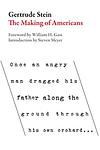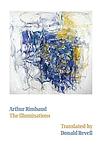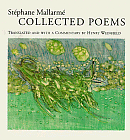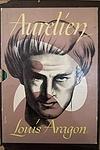The Greatest "Modernist, France" Books of All Time
Click to learn how this list is calculated.
This list represents a comprehensive and trusted collection of the greatest books. Developed through a specialized algorithm, it brings together 300 'best of' book lists to form a definitive guide to the world's most acclaimed books. For those interested in how these books are chosen, additional details can be found on the rankings page.
Genres
Modernist literature is a category of books that emerged in the early 20th century, characterized by a break from traditional literary forms and a focus on individual experience and perception. Modernist writers experimented with language, form, and structure, often using stream-of-consciousness narration and fragmented storytelling to convey the complexity and ambiguity of modern life. Themes of alienation, disillusionment, and the search for meaning are common in modernist literature, which reflects the cultural and social upheavals of the time. Overall, modernist literature is a challenging and thought-provoking genre that continues to influence contemporary literature and culture.
The "France" category of books encompasses literature that is set in or about France, its culture, history, and people. This category includes works of fiction, non-fiction, memoirs, travelogues, and historical accounts that explore the rich and diverse aspects of French society, from its art, cuisine, and fashion to its politics, economy, and social issues. The books in this category offer readers a glimpse into the unique and fascinating world of France, its people, and its way of life.
Countries
Date Range
Reading Statistics
Click the button below to see how many of these books you've read!
Download
If you're interested in downloading this list as a CSV file for use in a spreadsheet application, you can easily do so by clicking the button below. Please note that to ensure a manageable file size and faster download, the CSV will include details for only the first 500 books.
Download-
1. In Search of Lost Time by Marcel Proust
This renowned novel is a sweeping exploration of memory, love, art, and the passage of time, told through the narrator's recollections of his childhood and experiences into adulthood in the late 19th and early 20th century aristocratic France. The narrative is notable for its lengthy and intricate involuntary memory episodes, the most famous being the "madeleine episode". It explores the themes of time, space and memory, but also raises questions about the nature of art and literature, and the complex relationships between love, sexuality, and possession.
-
2. The Sun Also Rises by Ernest Hemingway
The novel is a poignant tale set in the 1920s post-World War I era, focusing on a group of American and British expatriates living in Paris who travel to Pamplona, Spain for the annual Running of the Bulls. The story explores themes of disillusionment, identity, and the Lost Generation, with the protagonist, a war veteran, grappling with impotence caused by a war injury. The narrative is steeped in the disillusionment and existential crisis experienced by many in the aftermath of the war, and the reckless hedonism of the era is portrayed through the characters' aimless wanderings and excessive drinking.
-
3. Journey to the End of The Night by Louis-Ferdinand Céline
The novel is a semi-autobiographical work that explores the harsh realities of life through the cynical and disillusioned eyes of the protagonist. The narrative follows his experiences from the trenches of World War I, through the African jungles, to the streets of America and the slums of Paris, showcasing the horrors of war, colonialism, and the dark side of human nature. The protagonist's journey is marked by his struggle with despair, loneliness, and the absurdity of existence, offering a bleak yet profound commentary on the human condition.
-
4. The Ambassadors by Henry James
The novel centers around a middle-aged man named Lambert Strether who is sent from New England to Paris by a wealthy widow, Mrs. Newsome, to convince her wayward son, Chad, to return home. However, upon arriving in Europe, Strether is charmed by the sophisticated lifestyle Chad has adopted and finds himself questioning the puritanical values of his homeland. He also becomes entangled in romantic relationships and complex social dynamics, leading him to ultimately question his loyalty to Mrs. Newsome. The book explores themes of morality, identity, and the concept of the American versus European lifestyle.
-
5. Tropic of Cancer by Henry Miller
The book is a semi-autobiographical novel set in 1930s Paris and describes the protagonist's life as a struggling writer. The narrative is filled with vivid descriptions of the city, sexual encounters, and philosophical musings, all penned in a stream-of-consciousness style. The protagonist's experiences living in poverty, his relationships with other expatriates, and his pursuit of artistic freedom are central to the story. Despite the explicit content, the novel is noted for its candid exploration of the human condition and the author's quest for personal and creative authenticity.
-
6. Nausea by Jean Paul Sartre
The novel follows a historian living in a small French town, struggling with a strange and unsettling feeling of disgust and revulsion he calls 'nausea'. He grapples with the existential dread of his own existence and the meaningless of life, continually questioning his own perceptions and the nature of reality. As he navigates through his everyday life, he is plagued by his philosophical thoughts and the overwhelming sensation of nausea, leading him to a profound existential crisis.
-
7. The Counterfeiters by André Gide
"The Counterfeiters" is a complex novel that explores themes of authenticity, morality, and identity, primarily through the lens of a group of friends in Paris. The story revolves around a series of counterfeit coins, which serve as a metaphor for the characters' struggles with their own authenticity and self-perception. The narrative also delves into the lives of the characters, their relationships, personal struggles, and their journey towards self-discovery. The book is noted for its non-linear structure and metafictional elements, with the author himself being a character in the story.
-
8. The Notebooks of Malte Laurids Brigge by Rainer Maria Rilke
"The Notebooks of Malte Laurids Brigge" is a semi-autobiographical novel narrated by a young man from Denmark living in Paris, who is trying to understand the world and his place in it. The protagonist is a poet and a dreamer, who spends his time observing and reflecting on the people and situations around him. The book is a collection of his thoughts, observations, and musings, which often revolve around themes of death, solitude, history, and the nature of existence. It's a deep and introspective exploration of the human condition and the nature of creativity.
-
9. Hopscotch by Julio Cortázar
This avant-garde novel invites readers into a non-linear narrative that can be read in two different orders, following the life of Horacio Oliveira, an Argentine intellectual living in Paris with his lover, La Maga. The story explores philosophical and metaphysical themes, delving into the nature of reality and the human condition, while also examining the struggles of intellectual and emotional life. The second part of the novel takes place in Buenos Aires, where Horacio returns after La Maga disappears, and where he grapples with his past, his identity, and his place in the world.
-
10. Zazie in the Metro by Raymond Queneau
A young, precocious girl named Zazie comes to Paris to stay with her flamboyant uncle, a professional female impersonator. She is obsessed with riding the Metro, but a strike thwarts her plans. As she explores the city on her own, she encounters a variety of eccentric characters, gets into mischief, and ultimately causes chaos in the city. The novel is a humorous and satirical look at Parisian life, filled with word play and surreal elements.
-
11. Nadja by André Breton
The novel is a surrealistic exploration of the narrator's relationship with a young woman named Nadja. As the narrator becomes infatuated with Nadja, their encounters become more and more dreamlike. The book delves into the nature of reality and the power of the subconscious mind, blurring the lines between dreams and reality. It is also a commentary on the socio-political climate of Paris in the early 20th century, showcasing the author's views on art, life, and love.
-
12. The Making of Americans by Gertrude Stein
"The Making of Americans" is an experimental novel that explores the concept of identity and the human condition through the lens of two American families. The author uses repetitive and complex prose to delve into the intricacies of family dynamics, social status, and personal development. The narrative is less about plot progression and more about the philosophical exploration of what it means to be an American, offering a unique perspective on the cultural and psychological tapestry of the nation.
-
13. Story of the Eye by Georges Bataille
This novel is a provocative exploration of the dark side of human nature, featuring two teenage characters who engage in increasingly bizarre and violent sexual games. Their actions, driven by their obsession with eroticism and death, lead them into a world of perversion and madness. The narrative is filled with explicit sexual content and shocking imagery, reflecting the author's fascination with the transgressive and the taboo.
-
14. Death on Credit by Louis-Ferdinand Céline
"Death on Credit" is a semi-autobiographical novel that explores the life of a young Frenchman in Paris during the early 20th century. The protagonist, a medical student from a poor family, struggles with the harsh realities of life, including poverty, sickness, and death. The narrative is marked by its dark humor, cynicism, and scathing critique of society, reflecting the author's own experiences and views. The protagonist's journey is a constant struggle against the absurdity and despair of existence, depicted through a series of episodic adventures and misadventures.
-
15. Alcools by Guillaume Apollinaire
"Alcools" is a collection of poems that explores various themes such as love, loss, and the passage of time. The work is notable for its innovative use of form and syntax, often eschewing traditional punctuation and capitalization. The poems are rich in imagery and symbolism, drawing on a wide range of influences from mythology to modern urban life. The collection is considered a landmark of modernist literature, reflecting the author's unique vision and distinctive poetic voice.
-
16. Our Lady of the Flowers by Jean Genet
The novel is a dark, poetic exploration of the criminal underworld in Paris, focusing on the life and fantasies of a homosexual prostitute and thief. The protagonist, while in prison, creates an elaborate fantasy world populated by outcasts, convicts, and murderers, including a transgender character who becomes his ideal of beauty and purity. The narrative is filled with graphic depictions of sex and violence, and explores themes of transgression, identity, and the transformative power of the imagination.
-
17. Illuminations by Arthur Rimbaud
"Illuminations" is a collection of prose poems that delve into the author's vivid dreamlike visions and his exploration of his inner psyche. These poems are filled with symbolic imagery and metaphors that challenge traditional poetic norms. The author uses his work to express his disillusionment with the conventional world, his longing for spiritual enlightenment, and his quest for personal freedom. The collection is a testament to the author's innovative style and his significant influence on modernist literature.
-
18. The Moon And Sixpence by W. Somerset Maugham
The novel is a fictionalized account inspired by the life of the painter Paul Gauguin. It follows Charles Strickland, a stockbroker who abandons his wife and children to pursue his passion for painting. Strickland's relentless and uncompromising pursuit of artistic expression leads him to a life of poverty in Paris and ultimately to Tahiti, where he finds a new muse in the exotic landscape and people. His disregard for social convention and personal relationships is portrayed in stark contrast to his sublime artistic achievements, raising questions about the nature of genius, the sacrifices made for art, and the price of personal freedom.
-
19. Paris Spleen by Charles Baudelaire
The book is a seminal work in the history of prose poetry, capturing the modern urban experience through a series of short, lyrical pieces. It delves into the psychological landscape of the city, exploring themes of melancholy, ennui, and the search for beauty amidst the squalor of Parisian life in the mid-19th century. The author's sharp observations and vivid imagery reflect his complex relationship with the city, oscillating between a deep love for its vibrant culture and a profound sense of alienation. This collection of prose poems is considered a touchstone for modernist literature, influencing generations of writers and poets with its innovative style and introspective depth.
-
20. Collected Poems by Stéphane Mallarmé
"Collected Poems" is a compilation of poetic works by a renowned French poet. The book offers readers a deep exploration into the intricate world of symbolism and the power of language. The author's artistic use of words to create vivid imagery and evoke profound emotions is evident throughout the collection. His poems delve into themes of reality, dreams, and the interplay between the two, offering a unique perspective on the human experience.
-
21. Wry-Blue Loves: Les Amours Jaunes by Tristan Corbière
"Wry-Blue Loves: Les Amours Jaunes" is a collection of poems that explore themes of love, death, and the sea. Written in a unique style that blends irony, sarcasm, and a sense of melancholy, the author uses vivid and sometimes shocking imagery to challenge conventional romantic ideals and express his own disillusionment with love and life. The sea serves as a recurring motif, symbolizing both the author's Breton heritage and the unpredictable, often cruel nature of existence.
-
22. In Parenthesis by David Jones
In Parenthesis is a semi-autobiographical novel set during World War I, focusing on the experiences of a British infantryman from his enlistment to his injury in the Battle of the Somme. The narrative combines prose and poetry to depict the harsh realities of war, including the camaraderie between soldiers and the chaos and horror of battle. The novel is noted for its detailed and realistic portrayal of trench warfare and its exploration of the psychological impact of war on soldiers.
-
23. Aurélien by Louis Aragon
"Aurélien" is a novel set in post-World War I Paris, following the life of the protagonist, a war veteran, who falls in love with a woman he sees in a café. However, the woman is already engaged to a friend of his, leading to a tumultuous love triangle. The book explores themes of love, war, and the struggle of the human condition, presenting a vivid picture of the social and political landscape of Paris during the 1920s.
-
24. Moravagine by Blaise Cendrars
The novel follows the adventures of an eccentric, violent, and mentally unstable protagonist who is released from an asylum by his psychiatrist. The pair embark on a chaotic journey across Europe and America, encountering a variety of strange and often dangerous situations. The narrative explores themes of insanity, violence, and the human condition, offering a dark and surreal critique of modern society.
-
25. Arcanum 17 by André Breton
"Arcanum 17" is a surrealist exploration of love, loss, and resurrection set amidst the backdrop of World War II. Drawing inspiration from the legend of Melusina, the author uses the symbolism of this mythic figure to discuss the role of women in society and the destructive nature of war. The narrative also delves into themes of renewal, rebirth, and the power of the feminine, all while using the surrealist style to blend reality and dream in a poetic and philosophical discourse.
Reading Statistics
Click the button below to see how many of these books you've read!
Download
If you're interested in downloading this list as a CSV file for use in a spreadsheet application, you can easily do so by clicking the button below. Please note that to ensure a manageable file size and faster download, the CSV will include details for only the first 500 books.
Download























